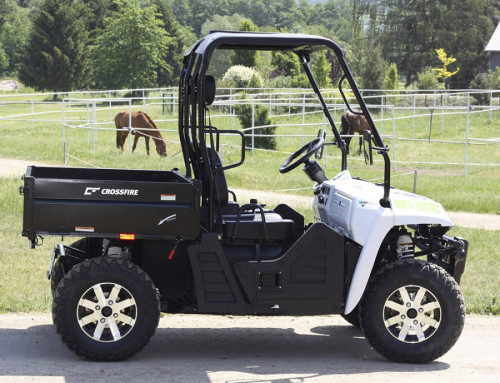Electric vehicles (EVs) offer several advantages for farm operations. Here are some key benefits of using electric vehicles on a farm:
Cost savings: Electric vehicles have lower operating costs compared to traditional petrol-powered vehicles. Electricity is generally cheaper than gasoline or diesel fuel, leading to reduced fuel expenses.
Additionally, electric vehicles have fewer moving parts, resulting in lower maintenance and repair costs over time.
Environmental sustainability: Electric vehicles produce zero tailpipe emissions, which helps reduce greenhouse gas emissions and air pollution. This is particularly important for farms located near urban areas or in regions with strict environmental regulations.
By using EVs, farmers can contribute to a cleaner and healthier environment.
Noise reduction: Electric vehicles operate quietly compared to internal combustion engine vehicles. This can be beneficial on farms where noise pollution can disturb livestock, wildlife, or nearby residents.
Quiet operation can also create a more peaceful and productive working environment for farmers and farm workers.
Energy independence: As the cost of solar and off grid battery storage has dropped so much in Australia, we are seeing its deployment all through the country.
By charging their electric vehicles with on-site renewable energy, farmers can reduce their reliance on the grid and achieve greater energy independence.
This integration of clean energy generation and electric vehicle use can contribute to a more sustainable farming system.
Versatility and utility: Electric vehicles come in various forms, including trucks, vans, and utility vehicles, which can be tailored to specific farm needs. Whether it’s transporting goods, equipment, or workers around the farm, electric vehicles offer versatile and practical solutions.
Some electric vehicles even have features like adjustable bed height, making them ideal for loading and unloading heavy equipment or materials.
Government incentives and support: Many governments around the world provide incentives, grants, and tax credits to encourage the adoption of electric vehicles.
These incentives can help offset the initial cost of purchasing electric vehicles or installing charging infrastructure on the farm. Taking advantage of these programs can make EVs a more cost-effective option for farmers.
Its worth while to looking at the Clean energy regulator to see if incentives apply to you. https://www.cleanenergyregulator.gov.au/
Branding and marketing opportunities: Embracing sustainable practices and using electric vehicles on the farm can be a positive branding and marketing opportunity. Consumers increasingly appreciate businesses that prioritize environmental responsibility.
By highlighting the use of electric vehicles in their operations, farmers can differentiate themselves, attract environmentally conscious customers, and potentially strengthen their market position.
This among other things can shore up Organic credentials of the farm. No fuel no fumes means cleaner produce.
It’s important to note that the specific benefits and feasibility of electric vehicles on a farm may vary depending on factors such as farm size, location, electricity availability, and infrastructure.
Conducting a thorough cost-benefit analysis and considering the unique needs of the farm is crucial before making any decisions.
Crossfire motorcycles has a great range of Electric UTV vehicles
https://crossfiremotorcycles.com/product-category/utility-vehicles/
#crossfiremotorcycles #crossfire #farmlife #farming_ismylife #outdoors #outdoorlife #getoutthere #timetoride #crossfireUTV #crossfiresidebyside #crossfiresidexside #sidebyside #sidexside #utv #utvlife #organicfarming #organicfarm #sustainablefarming #crossfireelectric #electricvehicle #electricutility #electricutv #electricsidebyside #electricsidexside #EV #zeroemissions #quiet #E1 #crossfireE1












